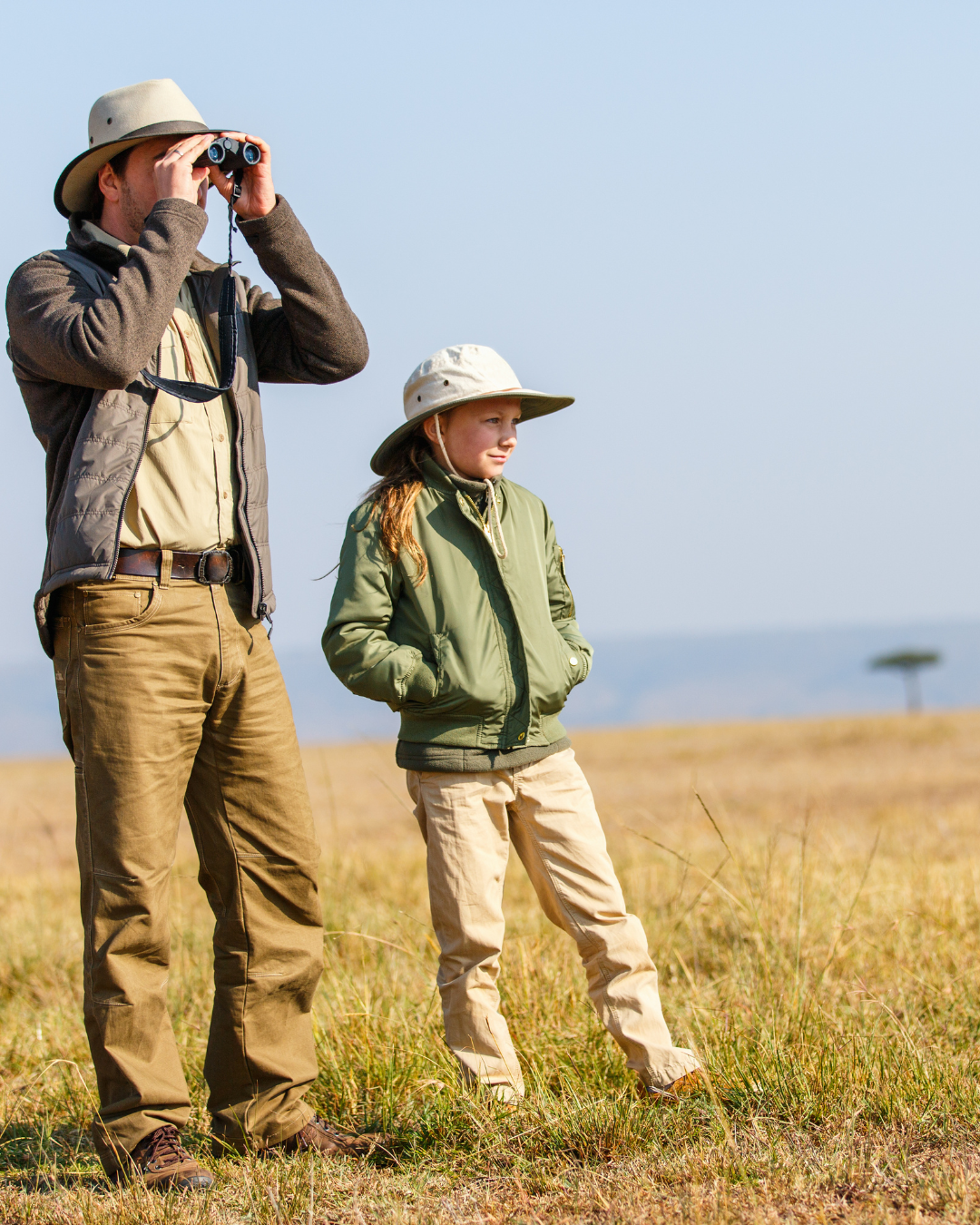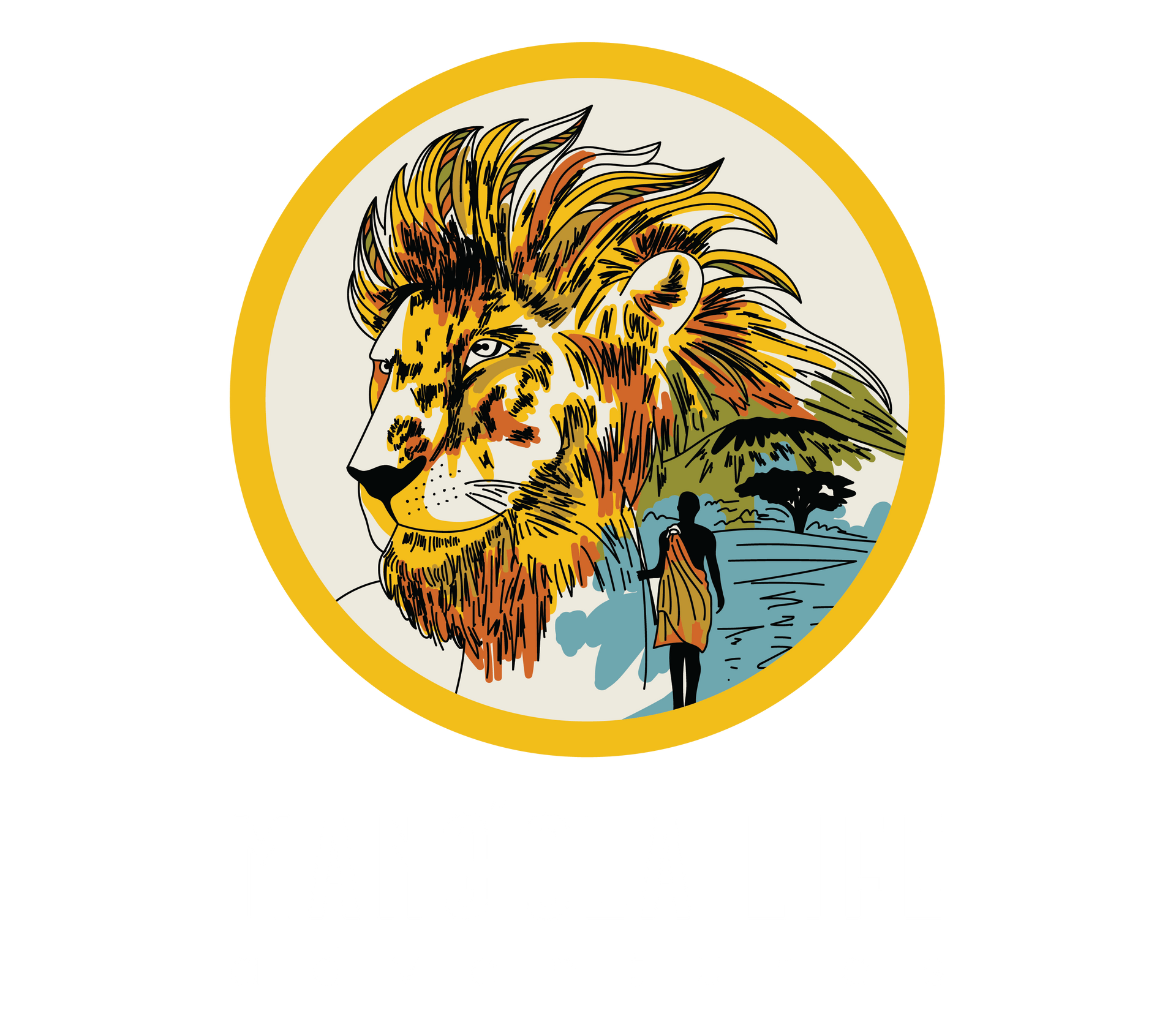10 Tips for planning an East Africa and Tanzania safari trip
The soft symphony of birdsong, the first light bathing the horizon in gold, and the excitement of stepping into the wild beauty of Africa—these are the moments that define a safari adventure. Africa's breathtaking landscapes and iconic wildlife await those ready to embrace the extraordinary.
Planning an African safari can be overwhelming—from deciding where to go, when to visit, and how to make the most of your budget. But fear not; this guide will simplify the process and help you design the safari adventure of your dreams. Whether it’s the Serengeti’s iconic Great Migration or Botswana’s serene Okavango Delta, your perfect safari awaits.
At Mang'ola Life, we redefine what it means to connect with Africa. Nestled in Tanzania, our safari go beyond wildlife; they connect you to the land, its people, and the principles of harmony and regeneration. Our commitment to sustainability ensures every adventure leaves a positive impact on nature and local communities. Let’s dive into the ultimate tips to plan your African safari in Tanzania with confidence.
Planning a safari in Tanzania, Africa can feel like an intimidating task. With so many options, from locations to seasons, and varying costs, it’s easy to get stuck in analysis paralysis. Travelers often worry about picking the wrong time of year or ending up in overcrowded tourist spots, missing out on the authentic beauty and tranquility of Africa’s wilderness.
This guide addresses those concerns, offering clear, actionable advice to ensure you enjoy a seamless, memorable experience. From budgeting and packing tips to cultural insights and safety advice, here are 10 essential tips to help you plan a transformative safari adventure.
What is the best month to go on an East African safari?
The best time for an African safari in Tanzania or East Africa depends on your destination and what wildlife experiences you’re dreaming of. Imagine planning your adventure, poring over guides, and daydreaming about watching elephants roam freely or witnessing the raw power of a lion’s hunt. Timing can make or break your safari experience, so here are the ideal seasons for some of Africa’s top destinations:
- Serengeti, Tanzania: June to October brings the Great Migration—a heart-stopping display of nature’s raw beauty. Imagine watching wildebeests and zebras navigate predator-filled river crossings, their survival instinct palpable in every leap. It’s more than a sight; it’s a moment that will stay with you forever.
- Masai Mara, Kenya: From July to September, the Great Migration reaches Kenya, offering breathtaking views of the migration crossing the Mara River—a true bucket-list moment.
- Queen Elizabeth National Park, Uganda: June to September provides cooler weather and excellent visibility as the sparse vegetation and water sources draw animals closer together
- Okavango Delta, Botswana: May to August is when the floodwaters peak, transforming the landscape into a lush paradise for water-based safaris.
Dry seasons typically provide better wildlife visibility as animals gather around waterholes. However, the green (wet) season has its charm: fewer tourists, vibrant landscapes, and the joy of spotting baby animals born during this time.

Is an East African safari worth it?
Absolutely! An East African safari isn’t just a trip—it’s a transformative journey that immerses you in the wonders of the natural world.
Imagine standing on the edge of a vast savanna as the golden sun dips below the horizon, painting the sky with hues of orange and pink. The air buzzes with life, from the distant roar of a lion to the chatter of birds. Nearby, the warm laughter of a Maasai guide echoes as he shares stories of his ancestors, weaving together the rich traditions of East Africa. This isn’t just a vacation; it’s an invitation to connect—with nature, with culture, and with the timeless spirit of the land.
Here’s why it’s worth every penny:
- Immersion in nature: Africa’s diverse ecosystems, from the Serengeti’s endless plains to the wetlands of the Okavango Delta, host unparalleled biodiversity. Each safari reveals new wonders, from towering giraffes to elusive leopards.
- Connection with cultures: Through meaningful connections with diverse local communities in East Africa, you’ll have the opportunity to unlearn and relearn ways of living. Whether it’s joining a Maasai elder in a storytelling session, learning traditional beading techniques from local artisans, or participating in a village celebration, each interaction invites you to immerse yourself with humility, respect, and gratitude. These moments go beyond observation—they offer a profound exchange of wisdom, allowing you to experience the rich cultural knowledge and practices of First Nations people in a way that is both transformative and deeply enriching.
- Unforgettable memories: Whether it's spotting the "Big Five" or marveling at a herd of elephants drinking at a watering hole, every encounter leaves an indelible mark on your soul.
While safaris can be an investment, they provide memories and personal growth that no price tag can capture.

Are Safar tours in East Africa safe?
Yes, African safari tours are generally very safe, especially when you book through reputable operators with experienced guides. However, stepping into the wild requires respect for the environment, the cultural norms, and adherence to safety protocols
Consider this: On a recent safari, a group spotted a pride of lions lounging under a tree. Their guide kept a safe distance, ensuring the lions felt unthreatened while the group observed this majestic sight in peace. A good guide knows how to balance adventure with safety.
Key safety tips:
- Follow your guide’s instructions: Guides are trained to read animal behavior and know how to keep guests safe.
- Stay in designated areas: Never wander off alone, especially at night. Wild animals are unpredictable, and safety lies in sticking with your group.
- Health precautions: Check with your doctor about necessary vaccinations and malaria prophylaxis. Staying hydrated and using insect repellent is essential.
By choosing experienced operators like Mang’ola Life, you’ll enjoy a safe, educational, and thrilling journey. You can read more about our car’s safety here too.
Where can I find the best African safari tours?
Finding the right safari operator can be overwhelming, but it’s worth the effort to ensure your adventure is seamless and meaningful. Operators like Mang’ola Life excel in crafting sustainable, culturally immersive safaris tailored to your interests.
Here’s what to look for in a safari operator:
- Reputation: Read reviews and testimonials from past travelers to gauge the quality of their services.
- Customizable itineraries: Look for flexibility to design your dream safari based on your goals, whether it’s wildlife photography, cultural immersion, or relaxation.
- Sustainability focus: Choose operators that prioritize eco-friendly practices and work closely with local communities to foster mutual benefit.
Explore our Tanzania safari tours and life expeditions, thoughtfully designed to connect you with nature and culture.

10 tips for planning a safari in East Africa adventure
1. Choose the right destination
East Africa is a region rich in both breathtaking wildlife and vibrant Indigenous cultures that have lived in harmony with nature for generations. Each destination offers a unique safari experience shaped by the land and the people who call it home. Here's what you should know:
- Tanzania’s Serengeti: Famous for the Great Migration, where millions of wildebeests, zebras, and gazelles move in search of fresh grazing lands. Best time: June to October for river crossings. The Maasai people, known for their deep spiritual connection to nature, have lived alongside this incredible wildlife for centuries, practicing traditional herding, oral storytelling, and vibrant beadwork that reflect their cultural identity.
- Kenya’s Maasai Mara: Known for its big cats and vast golden plains. Visit from July to October for migration sightings. The Maasai and Samburu communities are central to this landscape, known for their warrior traditions, intricate jewelry craftsmanship, and a deep respect for the land. Many lodges partner with these communities to offer immersive experiences, from guided nature walks to cultural storytelling.
Insider Tip: If you’re looking for a safari that blends wildlife encounters with meaningful cultural experiences, consider Kenya or Tanzania, where Indigenous communities play an active role in conservation efforts. For travelers seeking a deeper immersion in diverse ecosystems, you can combine the savannah landscapes of the Serengeti and Maasai Mara with gorilla trekking in Uganda or Rwanda, offering a once-in-a-lifetime experience of East Africa’s natural and cultural heritage."
2. Decide on the best time to go
Timing your safari is crucial for an unforgettable experience. Here’s what to consider:
- Seasonality:
- Dry season: Animals congregate around waterholes, making them easier to spot. Ideal for most regions.
- Rainy season: Known as the "green season," it's great for birdwatching, lush landscapes, and fewer tourists, but wildlife can be harder to see.
- Migration windows: Research iconic wildlife movements like the Serengeti migration or calving season in the Maasai Mara.
Insider Tip: Booking 6-12 months in advance ensures availability, especially during peak migration seasons.
3. Set your budget
Crafting a conscious safari doesn’t mean sacrificing comfort. Whether you opt for eco-lodges that reinvest in local communities or boutique camps with minimal environmental footprints, budgeting is about prioritizing impact and experience. For travelers seeking luxury, private lodges blend exclusivity with sustainability.
- Luxury safaris: Private lodges, exclusive game drives, and gourmet dining. Starting from $500-$1,500 per night.
- Mid-range safaris: Tented camps and group drives, balancing comfort and cost. Costs range from $200-$500 per night.
- Budget safaris: Basic campsites with shared facilities and fewer amenities. Prices range from $80-$150 per night.
Insider Tip: Consider all-inclusive packages covering accommodation, park fees, meals, and guided tours—they simplify planning and are often more economical. At Mang'ola Life, we offer diverse safari itineraries tailored to each of our guests and their budgets, ensuring a personalized and unforgettable experience. Whether you're looking for a luxury lodge safari, a mid-range adventure, or a more budget-friendly expedition, we have options to suit your travel style. Our group safaris include an 8-day itinerary, but we also customize trips based on your preferences. Learn more about our safari packages.
4. Choose accommodations wisely
Your safari base can elevate your experience, offering different levels of comfort and immersion:
- Lodges: Provide luxury amenities such as pools, spa treatments, and fine dining. Often located near prime game reserves, they offer a refined safari experience with modern conveniences.
- Glamping (Luxurious Camping): A perfect blend of adventure and comfort, featuring king-size beds, stylish interiors, and ensuite bathrooms—all under a canvas roof, delivering a safari experience with high-end touches.
- Camping (Budget-Friendly Option): For travelers seeking a more traditional and affordable safari experience, basic camping allows you to stay close to nature with tent setups in designated campsites, often with shared facilities.
- Mobile Camps: Designed to move with the Great Migration, these camps shift locations to ensure you're always at the heart of wildlife action, offering a raw and immersive experience.
- Community-Based Stays: Stay with local communities for a cultural exchange, where you can engage in daily traditions, share meals, and gain firsthand insights into Indigenous ways of life while supporting sustainable tourism initiatives.
Choosing the right accommodation depends on your comfort level, budget, and how deeply you want to connect with nature and local cultures.

5. Research safari operators
Your operator will make or break your safari. Here’s how to choose wisely:
- Look for certified guides
- Opt for operators emphasizing sustainability and partnerships with local communities.
- Read Google reviews and compare packages based on inclusions and flexibility.
Insider Tip: Avoid deals that seem too good to be true; they may compromise safety or quality.
6. Pack appropriately
Preparation is key to comfort and safety. Here's a checklist:
- Clothing: Opt for neutral colors like khaki, olive, or beige to blend with the environment and avoid attracting insects (dark blues and blacks can attract tsetse flies). In addition to practicality, dressing respectfully is important when visiting local communities—avoid shorts, sleeveless tops, or overly tight clothing. Lightweight, breathable long-sleeve shirts and trousers not only offer sun and insect protection but also align with the more conservative cultural norms in East Africa. A wide-brimmed hat is recommended for sun protection while exploring.
- Footwear: Sturdy, breathable walking shoes for game walks and sandals for relaxing.
- Gear:
- Binoculars (at least 8x42 magnification).
- A DSLR camera or smartphone with a good zoom lens.
- Essentials:
- Insect repellent: Choose a biodegradable, DEET-free repellent to protect yourself while minimizing environmental impact. Natural options with ingredients like citronella, eucalyptus, or lemon oil are effective and eco-friendly alternatives for safari travel.
- Biodegradable Sunscreen (SPF 30+).
- Reusable water bottle to stay hydrated.
- Power banks and adapters for charging electronics.
Insider Tip: Pack a lightweight daypack to carry essentials during game drives.
7. Understand Wildlife & Cultural Etiquette
Respect for nature and local communities ensures a safe, enriching, and harmonious safari experience.
Wildlife Etiquette:
- Keep your distance: Maintain at least 20-30 meters from animals to respect their space and avoid stress.
- No feeding: Feeding disrupts natural behaviors and can endanger both you and the wildlife.
- Photography: Avoid using flash, as it startles animals and may interfere with their natural activities.
- Stay seated and quiet: Abrupt movements or loud noises can agitate wildlife, so remain calm and listen to your guide’s instructions.
- Insider Tip: Always follow your guide’s expertise—they are trained to read animal behavior and ensure everyone’s safety.
Cultural Etiquette:
- Learn before you go: Take time to read about the history, cultural norms, and traditions of the communities you will visit. A little knowledge shows respect and enhances your experience.
- Respect local customs: A warm greeting in Swahili like "Jambo" (hello) or "Asante sana" (thank you very much) is always appreciated. Show gratitude and an open mind when engaging with local traditions.
- Support local artisans: When purchasing souvenirs, choose handmade crafts from local markets to support Indigenous communities and fair trade practices.
By honoring both wildlife etiquette and cultural respect, your safari experience becomes more meaningful, leaving a positive impact on both nature and the people you meet.
8. Stay healthy and safe
Please note: The following are general recommendations and not legally binding medical advice. Always consult with a healthcare professional for personalized guidance before traveling.
- Vaccinations: Check if you may need yellow fever, typhoid, or hepatitis A vaccines, depending on your travel history and itinerary and make sure to ask your doctor in your country which ones are recommended for you.
- Malaria precautions: Carry antimalarial medication, use mosquito nets, and apply biodegradable insect repellents to minimize risk.
- Stay hydrated: Bring rehydration salts to replenish electrolytes during long, hot days.
- Emergency supplies: Pack a small first aid kit with essentials such as pain relievers, antiseptics, and any prescription medications you may require.
- Insider Tip: Avoid drinking tap water—stick to bottled or filtered water to stay safe.
9. Immerse yourself in local culture
A safari isn’t just about animals—cultural immersion adds depth to your experience:
- Village visits: Participate in community-led tours to learn about traditional practices.
- Local cuisine: Try dishes like Ugali, Nyama Choma, or Pilau for an authentic taste of Africa.
- Storytelling and dances: Engage in cultural nights offered by many lodges or camps.
Insider Tip: Learn a few phrases in the local language—it’s a simple gesture that goes a long way in building connections.
10. Be flexible and patient
Nature doesn’t follow a schedule, so embrace a mindset of curiosity, openness, and presence:
- Wildlife sightings vary—some days may be quiet, but the most magical encounters often happen when you least expect them.
- Embrace downtime—use it to journal, reflect, engage with local communities, or simply soak in the breathtaking landscapes. Every moment in nature is an opportunity to slow down and reconnect.
Insider Tip: It’s not just about capturing the perfect photo—it’s about immersing yourself in the experience. Let go of expectations and allow the sights, sounds, and stories of the land to rekindle your connection with nature, with people, and ultimately, with yourself.
Ready to plan an unforgettable East Africa Safari adventure?
Planning a safari doesn’t have to be daunting. With the right preparation, your African safari can be a life-changing experience filled with awe-inspiring moments and deep connections to nature and culture. At Mang’ola Life, we’re here to help you create a journey tailored to your dreams and values.
Embark on a journey that celebrates Africa’s untamed beauty and profound cultural heritage. With our Tanzania safari tour and life expedition , your safari becomes a story of transformation—for you and the land you will be connecting with. Start your adventure today and let Africa’s spirit inspire you.
Related reads
- 30 Things to Do in Tanzania Africa
- When is the Best Time to Visit Tanzania Africa
- The top 5 Tanzania safaris to visit

Welcome to Mang'ola life we are a sustainable safari company located in the heart of Tanzania, Africa. Plan your next adventure with us.






